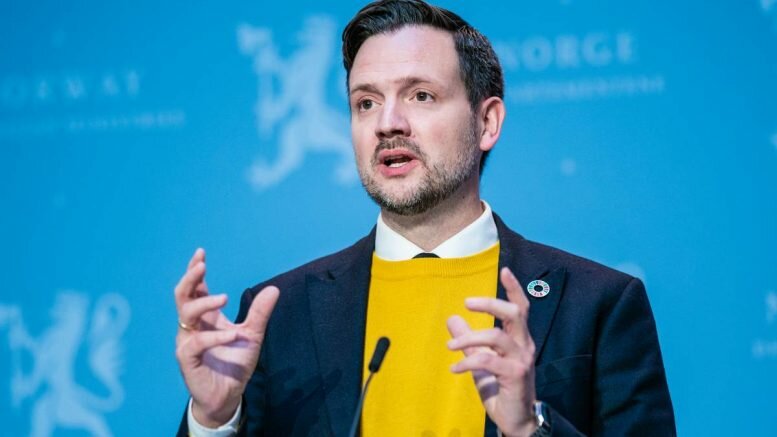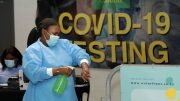The distribution of corona vaccines worldwide is far too slow. Minister of International Development Dag-Inge Ulstein is concerned about the consequences.
For one year, Norway has led the global pandemic event ACT Accelerator together with South Africa. This is the most important global measure to provide equal access to vaccines, medicines, and test equipment.
But half of the money is still missing, USD 22 billion (around NOK 187 billion), to reach the vaccine targets for 2021.
Ullstein says that the good news about effective vaccines is overshadowed by the fact that there are too few vaccines in the world. He fears vaccine nationalism.
“When it comes to the fair distribution of the vaccines – it is going too slowly. The danger that the countries of the world are not investing enough in fighting the global pandemic now is that we get new mutations that could threaten the effectiveness of the vaccines against COVID-19. So, we may be forced to shut down again,” Ullstein (KrF) said in a written comment to news bureau NTB.
Unwise to think locally
He thinks it is unwise only to think locally when fighting the pandemic.
“Even if countries protect their own citizens by securing vaccines for themselves, it will not help a lot in the long run if the virus is allowed to continue circulating in other countries so that new mutations occur that we do not have vaccines against,” he said.
“The international community’s handling of the pandemic must not be a fight of everyone against everyone. The situation is difficult for everyone, and right now, there are too few vaccines in all countries. In several places, the infection is also increasing,” Ulstein said.
Profitable with good distribution
Ullstein points out that a number of reports emphasize the macroeconomic benefits of ensuring a global distribution of vaccines and tests.
A study launched by the International Chamber of Commerce (ICC) shows, among other things, that rich countries will bear more than half of the enormous economic losses if developing countries do not have access to vaccines.
In addition to the economic argument for ensuring the global distribution of vaccines, there is also an important biological argument. Experts warn of the danger of new virus variants.
Danger of mutations
Uncontrolled infection in large parts of the world increases the risk of new mutations, which in turn increases the risk that current vaccines will not work.
A report from the Bill and Melinda Gates Foundation contains calculations that show that many lives will be saved if the vaccine is evenly distributed globally compared to if it is distributed to high-income countries first.
Production of vaccines
Ulstein believes that the transfer of knowledge and technology will be crucial in order to be able to produce vaccines worldwide.
“We must find available production capacity. The pharmaceutical industry must also secure licensing, as can be seen, for example, from AstraZeneca to the Serum Institute in India.
“We must also ensure greater transparency about which countries have ordered vaccines, how many, and at what price,” Ullstein added.
It is also important to look at how to ensure a greater degree of predictability for vaccine production and financing in the longer term.
Source: © NTB Scanpix / #Norway Today / #NorwayTodayNews
Do you have a news tip for Norway Today? We want to hear it. Get in touch at [email protected]





Vaccinate Norwegians first, then you can do what you want